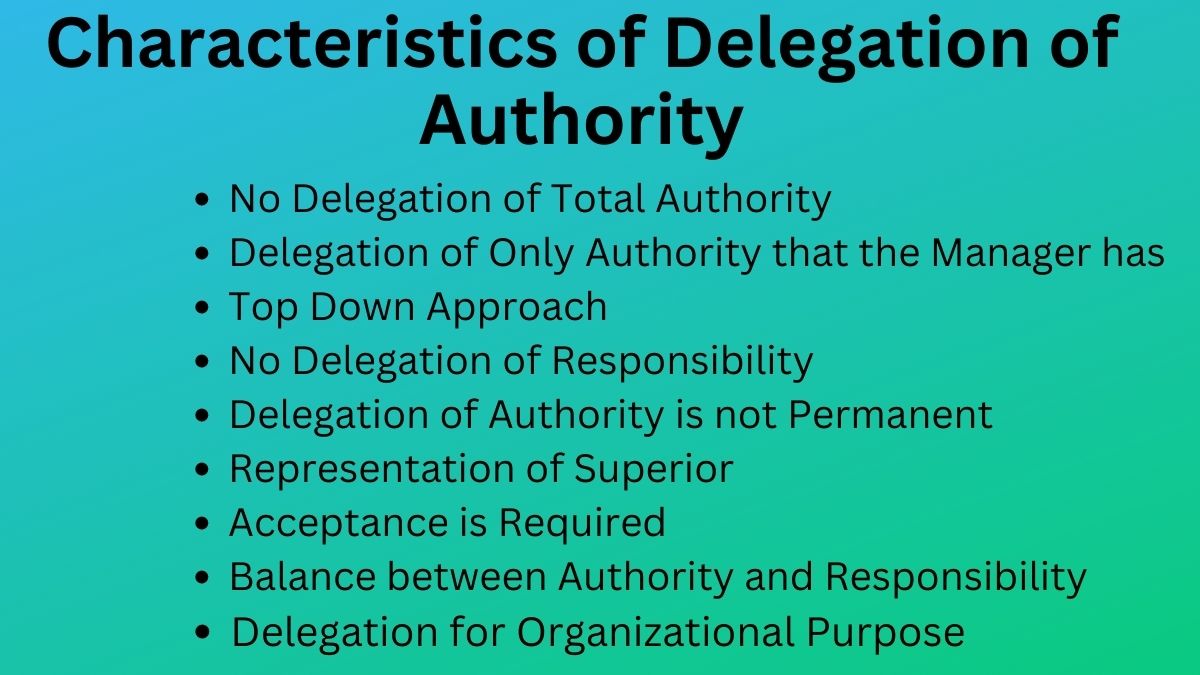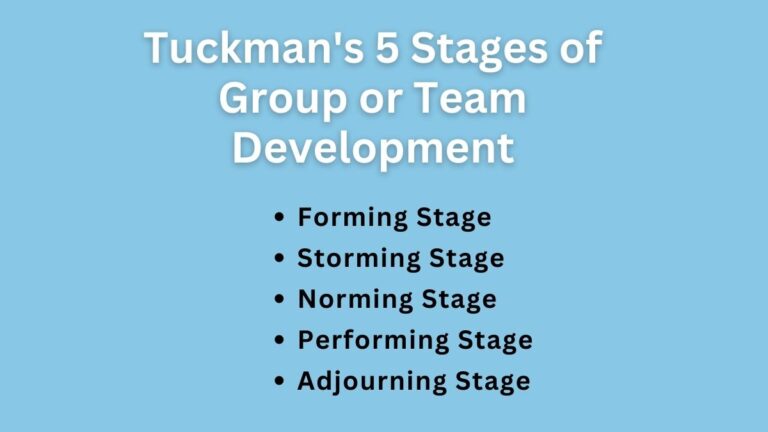9 Characteristics/Features of Delegation of Authority [Explained]
Characteristics of Delegation of Authority
Delegation of authority is the process of transferring a certain part of the authority to subordinate employees by the manager or superior. In which the employee is delegated duties to perform and necessary rights to execute those duties effectively. Following are the main characteristics/features of delegation of authority.
No Delegation of Total Authority
Management practice only allows the manager or superior to delegate some portion of their authority. Managers only delegate some authority to their subordinates.
If managers delegate their total authority their position will be affected. They have to entrust only that amount of authority to subordinates that is necessary to execute the given duties.
Delegation of Only Authority that the Manager has
This characteristic of delegation means that no one can give to others that he has not got. Managers are allowed to only delegate the authority that they own in the organization.
Top Down Approach
Delegation of authority is the top-down approach. The direction of delegating always flows from top-level positions to subordinate-level positions.
Only superiors or managers can delegate authority to subordinates, the subordinates can not. They should work under superiors and execute the delegated responsibilities.
No Delegation of Responsibility
Authority and responsibility are the two important components of authority delegation. And, a basic difference between them exist is that authority delegation to others is possible but delegation of responsibility is not possible.
Related: Process of Delegation
Meaning that managers can only delegate their authority, not their responsibility. They can assign responsibility to subordinates but the ultimate responsibility remains with them.
Delegation of Authority is not Permanent
In management practice, the delegation of authority is followed only for a specified time and specified purpose. Managers only step in the delegation process when they need to.
Related: Principles of Delegation
The goal is to achieve something through others i.e. employees. Employees have delegated responsibilities and rights to make decisions in the course of their job. And, once the job is done the given authority is also restored from them.
Representation of Superior
For example, when you have delegated the authority of a manager, in the absence of that manager, you have to act, think, and behave as a manager. This means, in such situations, every activity done by you will be represented as done by the manager himself.
Acceptance is Required
Delegation of authority will not be successful if the subordinate does not accept. Authority delegation is a formal or legal process and unless employees do not accept it, it can not be valid.
Thus, the acceptance of subordinates is required. This could happen because of fear of overload, uninterest of employees, lack of self-confidence, mistrust between manager & subordinates, etc.
The balance between Authority and Responsibility
Authority and responsibility balance are essential for effective delegation. A manager has to delegate only the authority that is required to fulfill the responsibility as expected.
Also Read: Difference Between Authority and Responsibility
Only authority without responsibility can create problems of misuse of power and undisciplined behavior. And, only responsibility without power will not lead to an effective and efficient job. Thus, in the delegation, it is crucial that the superior should balance the weight of authority and responsibility.
Delegation for Organizational Purpose
The practice of delegation of authority is applied within the organizations. Authority is vested in managerial positions, managers are not allowed to delegate authority for their personal benefit.
They should delegate authority for the activities that support the overall organizational purpose. And, while delegating managers should consider organizational goals, limitations, and prosperity.
Read Next: Barriers in Delegation
Sajan Kushmi is a content writer with more than 4 years of experience. He holds BIM Degree. He write on the topics related to Management, Marketing, and Entrepreneurship.






